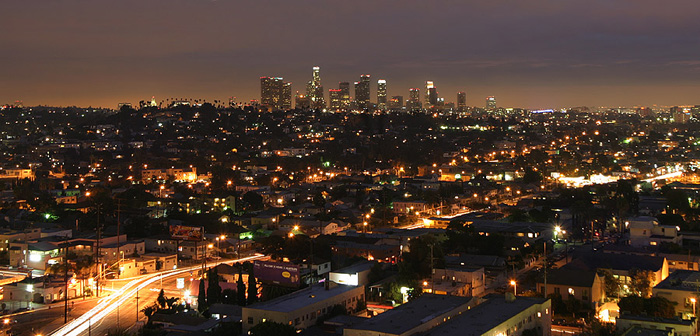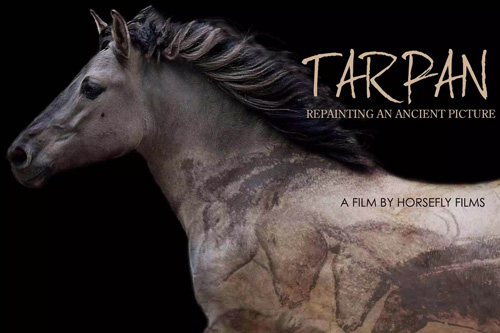
Los Angeles at night
PHOTO: Aaron Logan / Wikimedia Commons
With Poland’s five Oscar nominations this year, all Polish eyes have been on Hollywood lately, so we decided to get away from the long and bitter winter of the northeast and go to warm and sunny Los Angeles. That’s where all the excitement was.
As we all now know, Ida, minimalist, serene, an aesthetic gem, won for Best Foreign Film and, as director Paweł Pawlikowski said, he was accepting an award for this quiet contemplative film in the noise capital of the world. He even ignored the Oscar music cut-off cues and took the time to acknowledge the people who counted, among them, those in Poland who are “resilient, courageous, brave and funny.” He then said, “And now you can take a drink.” So we did.
Agnieszka Niezgoda already talked to three members of the Academy to ask about the “quiet Polish Catholic nun that America didn’t ridicule but fell in love with,” and they’ve shared their insightful views with us.
Now on to another stage: CR’s Magda Romanska reviews Mieczysław Weinberg’s opera The Passenger, with a brilliant survey that covers the opera, the history, the novel by Zofia Posmysz, the film by Andrzej Munk, and the responses to the production as it played New York and Houston, and is now in Chicago.
Polish culture lost a giant presence this year with the passing of Stanisław Barańczak. Joanna Nizynska looks at his life, his work, and his impact on culture and on everyone fortunate enough to have known him.
We are delighted to introduce a wonderful club that started because a group of friends grew too large to play bridge, but still not enough to stage an insurrection. It’s the Modjeska Club in LA, and oh how some of us north-easterners wish we were closer.
Still on the west coast, we introduce Magdalena Bryzek and Dariusz Wodziak, two denizens of Stanford University, reporting on research, innovation and startups in the dynamic atmosphere of Silicon Valley.
Justine Jablonska takes a look at a great drama playing out in the grand theatre of nature, the re-wilding of the ancient breed of horses, the tarpans – in the form of their descendants, the Polish koniks, and talks to Jen Miller and Sophie Peregrum, who filmed the story.
February 1940 marks the 75th anniversary of the Soviet deportations of Poles from eastern Poland, then occupied by the Soviet Union. Justine Jablonska presents February 1940: Exile, Odyssey and Redemption, a roundup of articles and reviews about this historic event.
She selects two to introduce the series, A World Apart, the first and most powerful account of the fate of prisoners in the Gulag written by one of Poland’s great writers, Gustav Herling-Grudziński. Long ignored, when not actively suppressed, it remains an essential document of this period. And Chris Swider’s riveting “Children in Exile,” in which the children tell their own story as “enemies of the state.” Among them was General Jaruzelski, a prisoner co-opted by his captors.
In response to readers’ requests, we have added a story on Polish children in Isfahan and New Zealand. Isfahan is often referred to as “the City of Polish Children,” while New Zealand sets the gold standard for welcoming and understanding child refugees. Amanda Chalupa, who is researching children in war, migration and trauma, tells the story.
Patrice Dabrowski, whose reviews have graced our pages before, has written Poland: the First Thousand Years. We love the title; Nathan Wood weighs in with his thoughts.
Entertainment journalist Greg Archer took a break from the frenetic atmosphere of red carpets to look at his family’s journey through forced exile in Siberia, recovery in Africa, and settling in the USA. CR reviews the book, Justine Jablonska interviews him.
And that’s it until this summer, when we’ll have more news from the stage, film, books, technology – all with a Polish dimension.
CR




Pingback: Welcome to Summer 2015!